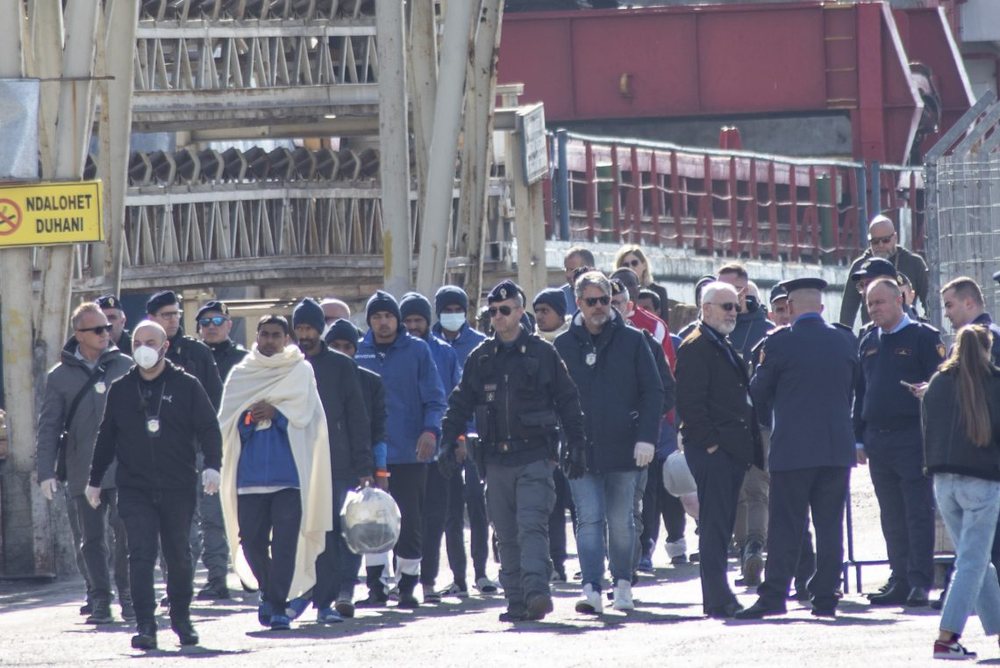
The Court of Justice of the European Union ruled on Thursday that a member state can declare a third country as "safe" for the origin of asylum seekers through a legal act, but only if this act is subject to full and effective judicial review.
The decision was made in relation to two asylum cases of Bangladeshi citizens who, after being rescued by Italian authorities at sea, were sent to the Gjadri camp in Lezha, within the framework of the Italy-Albania protocol.
There they submitted applications for international protection, which were examined under an accelerated procedure at the border and rejected by the Italian authorities, on the grounds that Bangladesh was listed as a safe country of origin. According to a legislative act adopted in October 2024, Italy has classified Bangladesh as such.
The two applicants appealed the decision to the Court of Rome, which turned to Luxembourg to clarify whether this classification meets the standards of EU law and whether the right to an effective judicial review is guaranteed.
In its ruling, the Court of Justice of the EU emphasizes that, although European law does not prohibit a member state from making such an assessment through legislation, this assessment must be reviewable by the courts, both as to its material content and the sources on which it is based.
“The sources of information on which this classification is based must be accessible to the applicant and to the relevant court or judicial authority,” the decision states. “Only in this way can a full and fair judicial review be guaranteed.”
The court criticized the lack of transparency in the Italian law of October 2024, which does not specify the sources justifying the classification of a country as safe. This lack, according to the judiciary, prevents both applicants and courts from challenging decisions refusing asylum in an informed manner.
In this context, the court emphasizes that a country cannot be included in the list of “safe countries” if it does not offer sufficient protection to all its citizens, including certain categories that may be particularly at risk.
The decision comes at a time when Italy and the EU are facing criticism over plans to process asylum claims outside EU territory, including in reception centres in Albania. Although Italian authorities have presented this model as a way to speed up procedures and better manage migration flows, human rights organisations and legal experts have raised concerns about the lack of legal and judicial guarantees in the accommodation centres outside the EU.
The EU Court also recalls that, until the new regulation replacing Directive 2013/32 enters into force, Member States are obliged to respect the criteria included in this directive for any country declared as “safe”. This includes verifying that the country does not have serious systematic violations of human rights and offers effective protection for vulnerable groups.
This decision is expected to have an impact on the asylum practices of EU member states and to question the legality of some existing classifications of countries as safe, especially in the context of new cooperation with third countries for the processing of asylum applications.
















